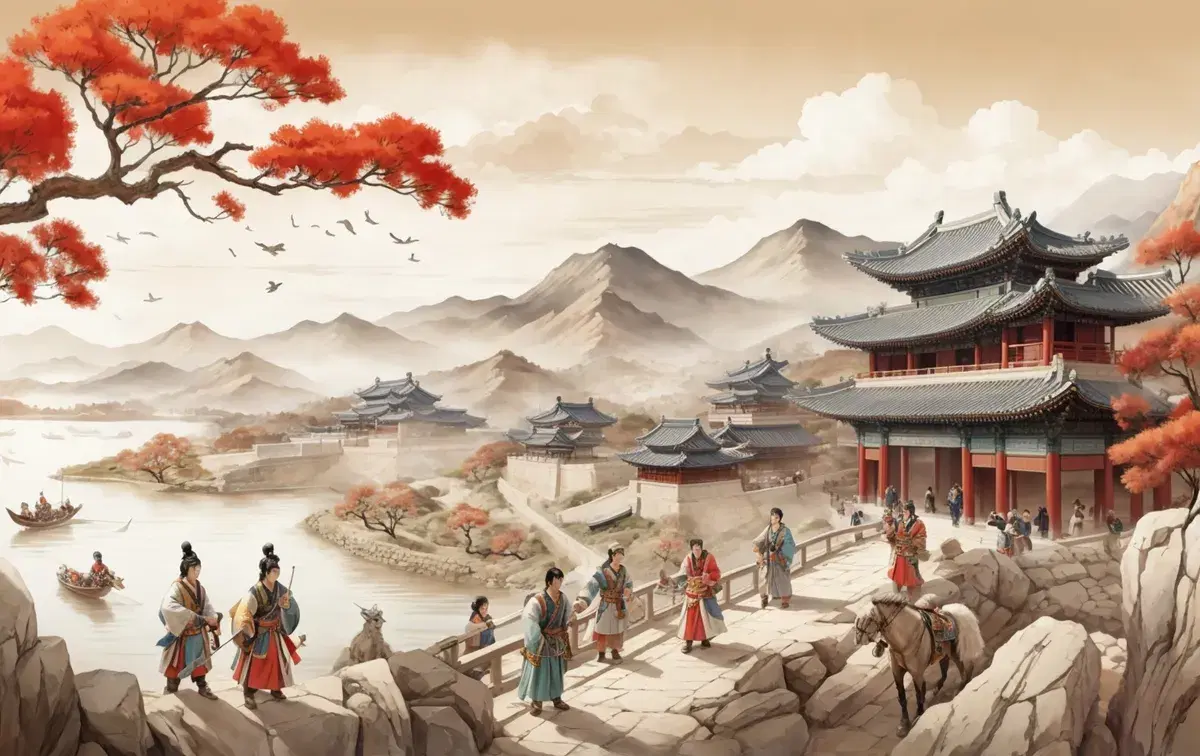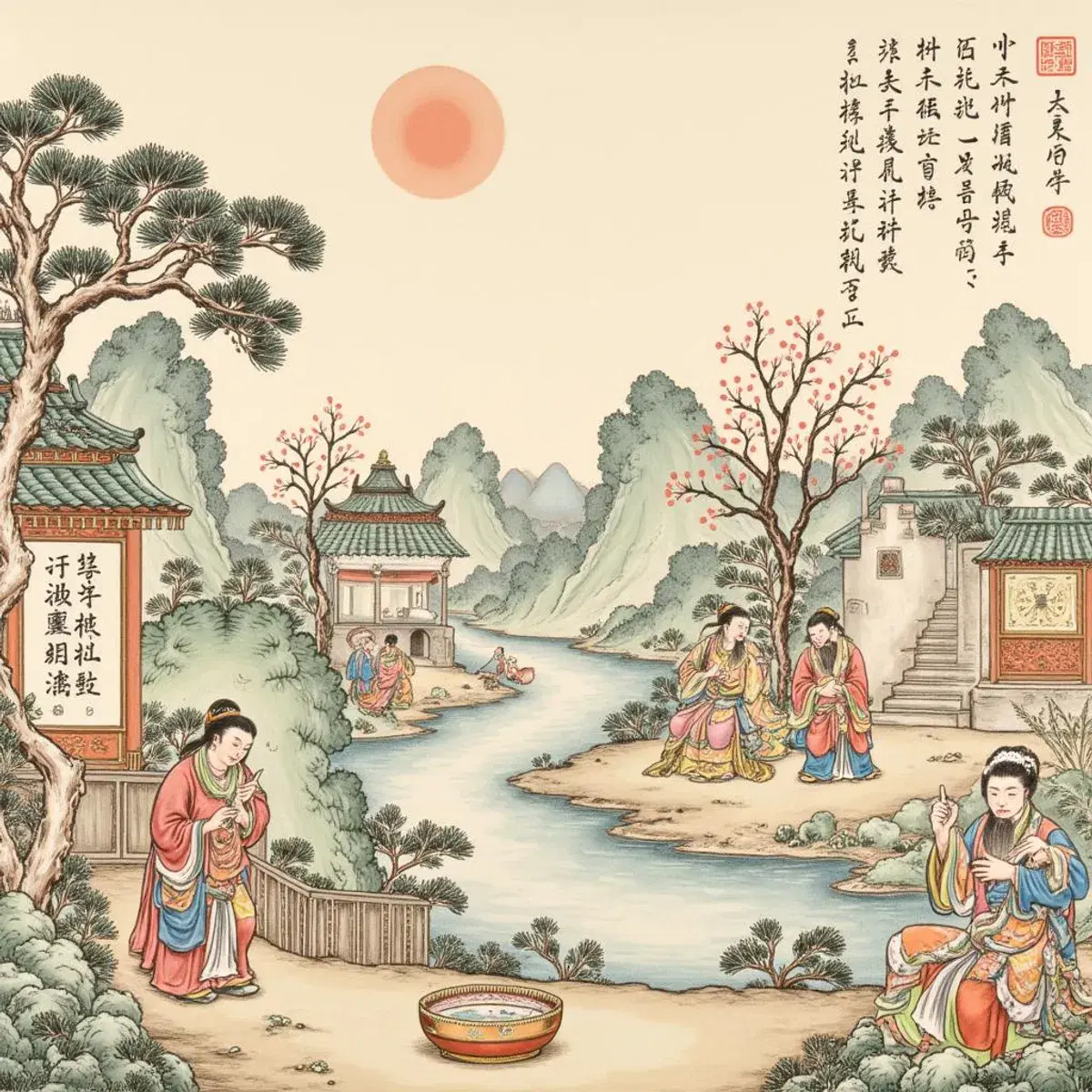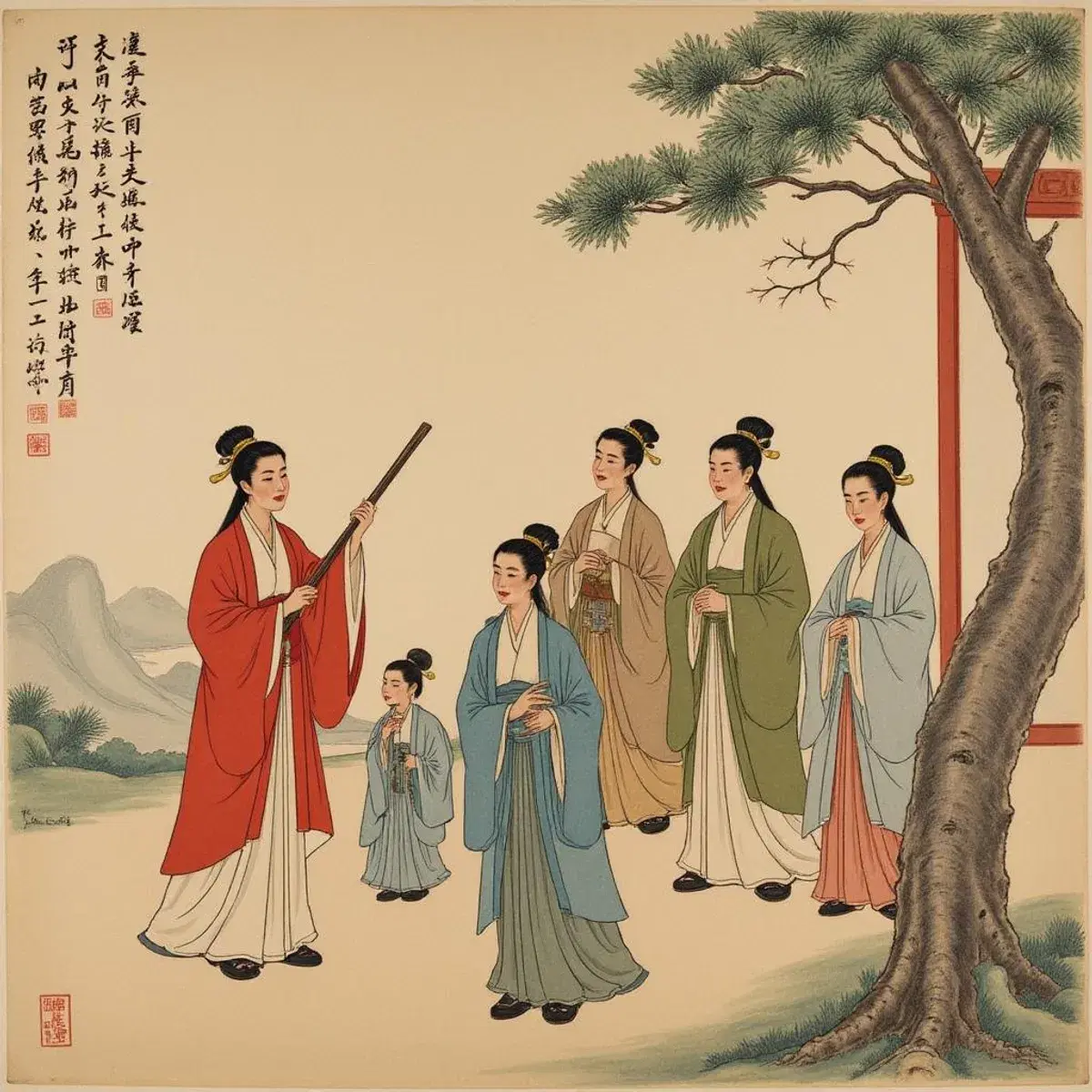The Zhou Dynasty
Few periods in Chinese history are as interesting and influential as the Zhou Dynasty. Spanning nearly eight centuries, it was the longest-lasting dynasty in China’s rich history. Its achievements not only laid the foundation for Chinese culture and governance but also continued to influence later dynasties and even modern thought. The Zhou Dynasty’s story unfolds in two distinct chapters—the Western Zhou and the Eastern Zhou—each marked by its own challenges and triumphs. From philosophical advancements to political strategies, the Zhou era remains a pivotal chapter in the evolution of Chinese civilization.

Zhou Dynasty
Rise of the Zhou: Defeating the Shang and Establishing Rule
The Zhou Dynasty emerged after overthrowing the Shang Dynasty around 1046 BCE. This dramatic power shift was justified through a groundbreaking concept—the Mandate of Heaven. Unlike earlier ideas of divine kingship, the Mandate of Heaven suggested that a ruler’s authority came from the gods, but it wasn’t absolute. A ruler could lose this divine approval if they failed to govern justly. This revolutionary idea provided a moral framework for leadership and held rulers accountable, shaping Chinese political philosophy for centuries.
The Zhou rulers implemented a decentralized system of governance similar to feudalism in medieval Europe. The king granted land to loyal nobles in exchange for military service and taxes. While the king remained the symbolic head, these regional lords governed their territories, ensuring stability and cooperation. This system allowed the Zhou Dynasty to expand and consolidate power, ushering in a period of relative peace and prosperity during the Western Zhou era.
Cultural and Technological Advancements in the Western Zhou Period
The Western Zhou period saw remarkable cultural and technological progress. Building on the achievements of the Shang Dynasty, the Zhou refined metalworking techniques, producing advanced tools and weapons. These improvements not only strengthened agriculture but also enhanced military capabilities, providing the means to maintain control over vast territories.
Writing flourished during this time, leading to the creation of some of China’s earliest literary works. Among these was the Shijing or Book of Songs, a collection of poems dating back to the 11th–7th centuries BCE. These verses were more than mere entertainment—they conveyed moral lessons and preserved cultural values, reflecting the Zhou’s emphasis on ethics and education.
Art and music also thrived. Music was regarded as a tool for promoting harmony and character development. Confucius himself later emphasized the moral significance of music, believing it could inspire virtuous behavior among rulers and citizens alike. Instruments and rituals associated with music symbolized order and balance, values deeply embedded in Zhou culture.

Cultural and Technological Advancements in the Western Zhou Period
Decline of the Western Zhou
Despite its early successes, the Western Zhou eventually faced internal strife and external threats. As regional nobles grew more powerful, their loyalty to the king began to waver. This shift culminated in 771 BCE when rebellious lords and invading tribes, likely the Xirong, attacked the Zhou capital and killed the king. This catastrophic event forced the Zhou rulers to relocate their capital to Luoyang, marking the beginning of the Eastern Zhou period.
Eastern Zhou Period
The Eastern Zhou era was a time of political fragmentation and warfare, yet it also gave rise to extraordinary intellectual and cultural achievements. This period is further divided into two phases—the Spring and Autumn Period (770–476 BCE) and the Warring States Period (475–221 BCE).
In the Spring and Autumn Period, the Zhou kings struggled to maintain authority as regional states became increasingly independent. Despite their weakened position, the Zhou kings retained the Mandate of Heaven in name, and rival states continued to recognize their symbolic status. This tenuous balance, however, gave way to escalating conflicts as states vied for dominance.
Warfare and Strategy: The Rise of Military Innovations
Initially, warfare followed strict rules and rituals, but as rivalries intensified, these codes of honor eroded. By the Warring States Period, warfare had transformed into a brutal struggle for survival. It was during this chaotic era that Sun-Tzu wrote The Art of War, a timeless treatise on military strategy that remains influential worldwide.
While Sun-Tzu emphasized strategic thinking and discipline, another philosopher, Mozi, advocated for peace. Mozi’s vision centered on equality in defense and offense, hoping to create balance and discourage aggression. Unfortunately, his ideas did not gain traction, as most states prioritized victory over harmony.
One of the most significant figures of this period was Shang Yang, a statesman in the state of Qin. Rejecting traditional values, Shang Yang promoted strict laws and harsh punishments to enforce order. His reforms laid the groundwork for the Qin’s eventual unification of China, ending the Zhou Dynasty.
Philosophical Flourishing: The Age of Thinkers
While wars raged, the Eastern Zhou also witnessed a philosophical revolution that shaped Chinese thought for millennia. Confucius, Lao-Tzu, and Han Feizi emerged during this era, presenting ideas that addressed governance, morality, and human nature.
Confucianism, founded by Confucius, emphasized respect, morality, and proper conduct, particularly in governance and family life. His teachings stressed the importance of education and ethical leadership, forming the backbone of Chinese society.
Taoism, inspired by Lao-Tzu, offered a contrasting perspective. It emphasized harmony with nature and the pursuit of balance, promoting a more spiritual and introspective way of life.
Legalism, advocated by Han Feizi, took a pragmatic and authoritarian approach. It prioritized strict laws and centralized control, a philosophy that later guided the Qin Dynasty.
These schools of thought provided enduring frameworks for governance, ethics, and personal conduct, leaving a lasting legacy beyond the Zhou era.
Art, Literature, and Music: Cultural Achievements Zhou Period
The Zhou Dynasty made significant strides in art and literature. Writing advanced as the Zhou refined the script inherited from the Shang. This development enabled the recording of rituals, laws, and philosophical texts, preserving knowledge for future generations.
Music played a central role in Zhou culture. Seen as a reflection of cosmic harmony, it was integrated into ceremonies and education. Confucius, in particular, championed music as a tool for moral cultivation, linking it to social order and virtue.

Zhou Period Cultural Achievements
End of the Zhou Dynasty
The Zhou Dynasty officially came to an end in 256 BCE when the Qin state conquered the last remnants of Zhou authority. Despite their downfall, the Zhou left behind an indelible mark on Chinese civilization.
Their advancements in governance, such as the Mandate of Heaven and feudal organization, set precedents for later dynasties. Philosophical traditions established during this era continued to shape Chinese thought, influencing systems of education, governance, and ethics.
Technological and agricultural improvements initiated by the Zhou also endured, providing a foundation for future economic growth. Even the Qin, despite attempting to erase Zhou culture, relied on Zhou innovations in metallurgy, irrigation, and warfare.
Conclusion
The Zhou Dynasty’s long reign stands as a testament to its adaptability and cultural richness. While political turmoil and warfare marked its later years, the dynasty’s intellectual and cultural achievements defined Chinese identity. Its philosophical and artistic legacies not only survived attempts to erase them but also thrived under subsequent dynasties, shaping China’s cultural and political landscape for centuries.





